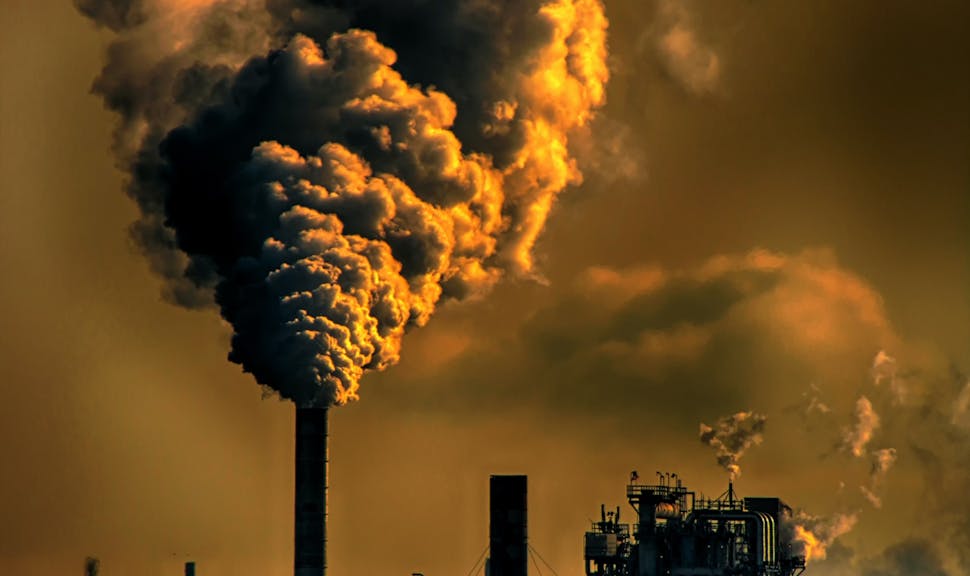

Mirjam BambergerChief Strategic Development Officer, AXA in Europe & Latin America
24 juin 2022
A quoi s'attendre lorsque le risque climatique reste sous-estimé
L'un des rapports les plus médiatisés sur le changement climatique a récemment été publié. Le GIEC, qui a plus de 40 ans, est l'une des évaluations scientifiques les plus rigoureuses et équilibrées sur le climat. Il est élaboré conjointement par des centaines d'experts du monde entier et publié tous les cinq ans. Il y a cependant un problème : dans presque toutes les prévisions, l'évaluation a largement sous-estimé le risque climatique jusqu'à présent.
4 minutes
The key issue has become apparent with the latest climate assessment of the Intergovernmental Panel on Climate Change: A credible transition to a below 2 or even 1.5 degree world has become increasingly challenging.
At this point in time we are tracking towards a 3.2 degrees world above pre-industrial levels - and this is only upon the condition that governments implement their current mitigation policies.
There is a real risks for our climate to rise above 2ºC that could make life unbearable for millions of people. Already today nearly half of the world’s population live in contexts that are highly vulnerable to climate change. And we all have witnessed the increase in frequency and severity of natural disasters such as intense heatwaves, droughts and fires, cyclones, extratropical storms, torrential rains and river floods.
For the insurance sector the risk of climate change can (still) be repriced every year in a base scenario, so most of the risk remains with society. What becomes, however, an event that happens every year will no longer be insurable. The toll on society will be high.
A World Under a 2°C Scenario
The 2022 IPCC report is an eye opener. If you do not have time to read hundreds of report pages, here are the top findings of the assessment summarized for you:
- Greenhouse Gas Emissions are at their highest levels in human history. Let's be clear, the root cause of hiking emissions is man-made - as it has been over the last decades. Emissions today increased by 54% compared to 1990. Population growth and oversupply in products and services remain the two main drivers of CO2 emissions from fossil fuels.
- At 2°C, two thirds of the global coastline will experience a 20% sea level rise. Sea level events, such as tidal waves, that occurred once per century before will occur every year. At 2ºC, there will be ice-free summers in the Arctic every 10 years! And by end of the century, between 50-75% of people around the globe will be exposed to excessive heat which scientis classify as life-threatening, or in IPCC terms,
deadly heat
. - There is little to no room for fossil fuels under both 1.5°C and 2°C scenarios. Fossis will remain unburnable if warming is limited to 2°C. This will impact about 30% of oil, 50% of gas, and 80% of coal reserves. These fossil-related assets will be stranded. Finance remains a critical enabling factor for the low carbon transition. However, till date finance for fossil fuels still outstrips funding for climate action.
When Net Zero Becomes Increasingly Unlikely
The levels of societal awareness and support for climate have never been as pronounced. Yet, we are all aware that the Net-Zero
commitments become increasingly challenging to achieve by 2050. There is insufficient rapid pace to decarbonizethe real economy. This will require actors to set more ambitious intermediate targets to a net-zero trajectory and create more credible transition plans. Such plans no longer consist of divestments only, but real economy engagement.
The IPCC concludes rather alarmingly that, despite increased civic and private engagement to combat the climate crisis, there is no conclusive evidence that this results in overall better mitigation outcomes. In fact, there is evidence that confidence in the effectiveness of public and private actors to combat climate change is gradually eroding.
What to Expect In The Next 100 Years
So what to expect from our plant in the next 100 years if we do not take any action on Climate Change? Today's business as usual is making our planet unlivable:
The sense of urgency is high to bolster our actions around climate change. And to governments, the outlooks are rather uncomfortable, ironically, with or without underestimations under review.
To state the obvious: Prevention remains the key lever to increase society’s climate resilience and adaptation.
- Sectoral Changes: To accelerate mitigation, rapid decarbonisation of the electricity sector and low-carbon electrification of buildings, industry and transport a critical. A focus on energy use and supply is essential, but not sufficient on its own – agriculture and food value chains need to be reengineered.
- Individual Choices: Behavioural changes are identified for the first time as an impactful lever for mitigation. Transition into plant-based nutrition, changes in consumption of manufactured products, mobility, and reduced demand for electricity stay on top of the list on how we can make a difference day by day.
- Nature's Response: Natural carbon sinks - such as forests, peatlands and wetlands - can contribute to effective mitigation if protected and sustainably managed. In the short term, restoring natural carbon sinks remains a cost-effective solution to carbon removal, with associated benefits for local communities.
- Green Technology: Low-carbon technologies that are not yet commercially competitive. To jump-start the market, the coalitions need to be built and forward financing of green technologies in this decade will be critical to accelerate their affordability and drive long-term, net-zero transformation across industrial value chains.
The IPCC has become an extremly valuable source to factualize climate risks. For non-experts, however, the assessment remains too dense in data and rather overwhelming.
To more valuable resources I can offer:
- If you prefer a video about key conclusions from the IPCC report, AXA has created an intuitive 5-minutes synthesis for you:
- If you seek further insights on how to address climate change for your sector or country, there are other sources next to the IPCC. The World Economic Forum, for example, has created strategic thinking around How to Save the Planet. Strategic Intelligence (weforum.org).
On a (personal) side note, the WEF decided to restrict some of the insights to a fee-liable access. This is unfortunate. It is this type of knowledge that should be shared and accessible to everyone. This is how we save our plant, and there are better ways to make money.
Le contenu de cet article reflète les opinions de l'auteur concerné et pas nécessairement celles du Groupe AXA.
Mots-clés:
Finance durable


